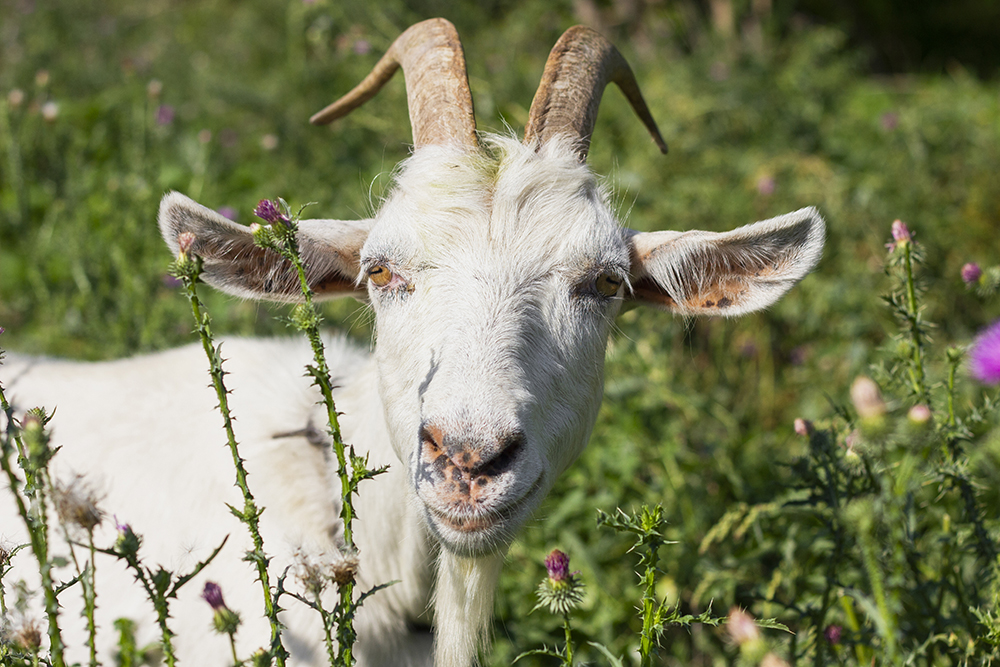Goat’s milk providing a sustainable solution

Primary industry: There is a shift in farming taking place that is seeing goats’ milk and goat milk based infant formula staking a greater claim on New Zealand supermarket shelves.
The reasons are complex. They include a greater demand for goats’ milk- based export product from countries where goat has been a staple part of the diet for centuries, people with an intolerance to cows’ milk in the family looking for an alternative and a greater return on interest on the investment in some farmland from goats.
When Bayleys Waikato advertised a goat farm for sale late last year, country sales manager Mark Dawe says he and his team and the vendor were taken aback by the interest in the property.
The farm was producing 38,000kg of milk solids annually and turning over $665,000. Like many goat farms the goats are kept in big open pens, with fresh grasses, hay, silage and pasture plants being grown on the remaining 44 hectares of the property and cut and carried to the animals.
Part of a co-operative of 60 goat milk farmers, the farm has been given permission to produce even more milk this year. “There is a growing interest in converting to milking dairy goats,” Dawe says. “The motivation is varied, but I know one farm that is now running both cows and goats in tandem to achieve a diversity of income. Another grain supplier is moving into goats and another farm was recently bought by a business person with an agricultural background as an investment.”
A look at the published figures for one of the country’s largest goat milk producers, Dairy Goat Cooperative, reveals its farmers were paid $15 per kilogram of milk solids (kg/ms) last year (plus a bonus of $2.50 per kg/ms). It projected that it would be able to hold the $15 rate in the coming year. Both the coop and other companies have been actively recruiting new suppliers.
New Image Group, a New Zealand health products and nutritionals manufacturer with a multimillion dollar spray dry plant and canning and packaging plants, says it is looking for more suppliers as demand for its goat milk infant formula BabySteps is growing throughout the country.
Guy Wills, the general manager of New Image Group, says the company was motivated to produce BabySteps for two main reasons – children’s caregivers looking for an alternative to cows’ milk formula and, more importantly, for a sustainable supply.
“Infant formula was being stripped from New Zealand retail shelves by people exporting it to lucrative overseas markets,” Wills says. “While new export regulations have stymied much of that, there is still huge demand – especially from Asia. Some companies are exporting all they produce and when parents or caregivers go to their local shops they cannot always find the infant formula they have been using, or the stage that their infant is on.
“We decided that as well as exporting, as a New Zealand company we needed to ensure that there was a sustainable supply for Kiwi parents and caregivers. That means the three stages from new-born to toddler would be not only formulated for New Zealanders, but also be available on shelf.”
In terms of nutritional benefits goats’ milk ticks the boxes. While slightly higher in fat than standard cow’s milk, the fat is fundamentally different in that it does not contain agglutinin – a substance in cow’s milk that makes fat globules cluster together making them harder to digest. This, in conjunction with higher levels of essential fatty acids linoleic and arachnodonic acids, means goat’s milk is easier to digest than cows’.Further, the proteins in goat’s milk are different from cow’s milk. When goats’ milk is consumed, the proteins results in a softer curd, which also aids digestion.
The demand for an increase in goat milk production has seen the Ministry of Primary Industries (MPI) give a grant under its sustainable farming fund. After a one year AgResearch pilot, the programme has now been extended for three years and will examine how improving production efficiencies and the composition of feeds will help to increase milk production. The MPI project findings will be shared across the goat farming sector “generating the knowledge required to drive essential and sustainable growth in the dairy goat industry”.
<The following post has been copied from the website below, and all copyrights belong to the website and the author.>
APN / NZ HERALD – By James Russell
https://www.nzherald.co.nz/nz/goats-milk-providing-a-sustainable-solution/7QLKUCDLZOVFXAXEZBJ5DZBE2I/
